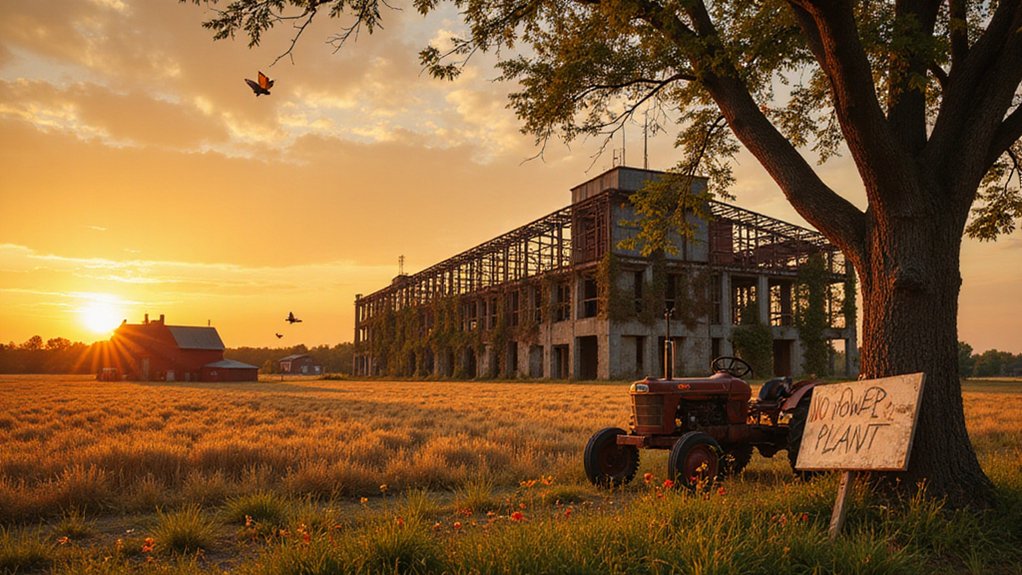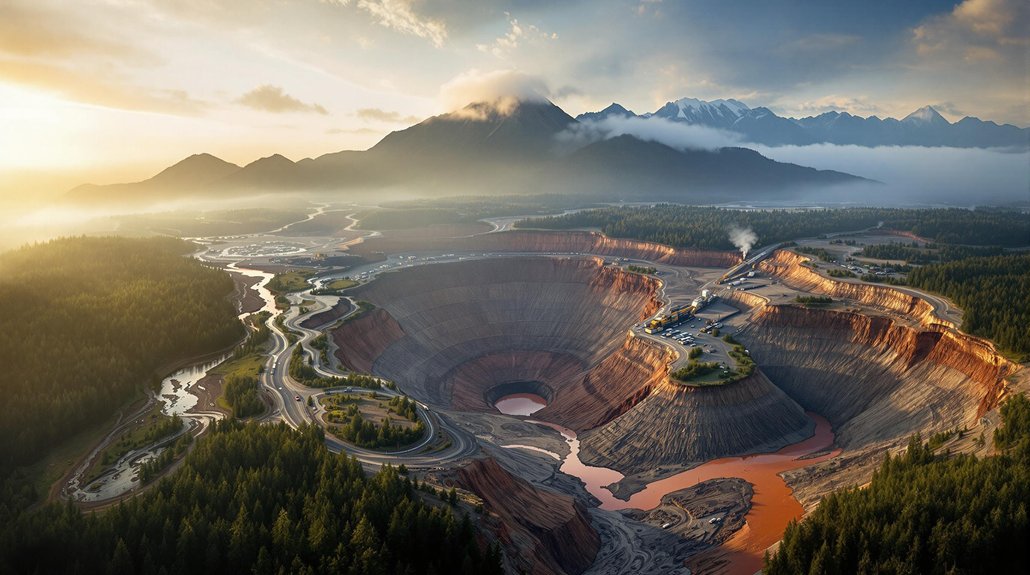Big Tech wanted to build a massive power plant in rural Virginia. Balico LLC rolled into town in 2024 with plans for a MegaCampus data center and a 3,500-megawatt gas-fired power plant. They probably thought the locals would roll over. They thought wrong.
Big Tech rolled into rural Virginia expecting compliance. The locals had other plans.
The farmers came out swinging. Packed hearings, petition signatures flying everywhere, and the Southern Environmental Law Center leading the legal charge. These weren’t just angry neighbors with pitchforks. They brought receipts. Environmental impact analyses, challenges to rezoning applications, the whole nine yards. When decision-makers showed up to public meetings, opposition outnumbered supporters by a landslide.
The proposed power plant wasn’t just an eyesore. It threatened everything. Air quality, water quality, farmland viability – all on the chopping block. Harvard researchers estimated the gas plant would spew over 326 tons of dangerous PM2.5 emissions annually. Environmental groups submitted hard data on ecosystem impacts while farmers testified about threats to their livestock and organic certifications. Asthma rates would spike. Waterways would get contaminated. The carbon footprint would crush local sustainability efforts like a bug.
Money talks, but sometimes it speaks the wrong language. Farm cooperatives laid out the economics: rising land prices, displacement by industrial development, reduced crop yields from pollution. The region’s agricultural economy generates real value, not just tax revenues from tech giants. Food security matters. Local jobs matter. Arable land matters more than server farms.
The infrastructure demands were insane. This wasn’t just about plugging in some computers. The power plant and data center would drain water aquifers, leaving farms high and dry during irrigation season. The electrical grid couldn’t handle it. Who pays for upgrades? Not the tech company, that’s for sure. Rural electric cooperatives have fought this battle before. With electricity generation accounting for over 40% of energy-related emissions globally, this plant would have worsened an already critical climate situation.
Here’s the twist: these rural communities don’t even get the tech benefits. While Big Tech builds massive industrial footprints, farmers still struggle with basic broadband. The digital divide keeps rural areas uncompetitive while tech companies focus on urban markets. Local tech adoption could boost farm efficiency without destroying the terrain.
The farmers won this round. Sometimes David beats Goliath when David brings lawyers, scientists, and a community that refuses to back down.
References
- https://www.selc.org/news/a-rural-virginia-county-is-a-case-study-in-community/
- https://scholarworks.waldenu.edu/cgi/viewcontent.cgi?article=11836&context=dissertations
- https://www.peopleinneed.net/media/publications/1718/file/case-study-of-the-marubay-rural-renewable-energy-technology.pdf
- https://www.usda.gov/sites/default/files/documents/case-for-rural-broadband.pdf
- https://www.asau.ru/files/pdf/3121953.pdf








